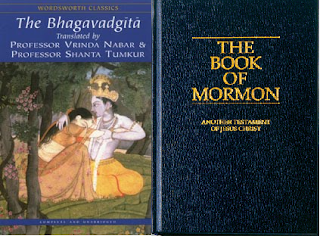
I have read the Alcoholics Anonymous big book, and multiple other books on addiction. I have read the entire Holy Bible and the Book or Mormon many times. I have read the Bhagavad Gita, the writings of Confucius, and many books by other religious leaders and deep thinkers. I have taken classes from a Zen master, spent hours doing Yoga, sat for long periods in contemplation and meditation, fasted for days, and prayed thousands of times.
There is a unifying theme: Self discovery, meditation, reflection, inner peace, or in other words: an analysis of oneself.
As I study the "12 steps" I find Step 4 to be the most important, the most daunting, and the most meaningful for life in general.
Step 4 does not say: "List all the bad things you've done." It asks you to make a "searching and fearless moral inventory of yourself." Figure out who you are. What makes you tick? What failures have you had, and what led you there? What resentments do you still hold? Why are they still there after all this time? What are your greatest strengths, your talents, your abilities? What keeps you from excelling?
Step 4 isn't just about getting over an addiction, or repenting, or fixing past mistakes. It's about self-discovery. This is about answering the hardest question we've ever asked ourselves: "Who am I?"
Writing out this fearless moral inventory will help you discover your true relationship with yourself, with God, and with others. You will find weaknesses. You will find strengths. You will also find reasons for both. You will find heartache and joy, but mostly you will find understanding.
I began working on this four months ago. I'm still not even close to finishing.
Today's Self-Contemplation: Why do I connect with certain fictional characters?
Why do I connect so well with Jean ValJean from Les Miserables? Why did I write a 1400 word essay comparing ValJean to Tevye from the Fiddler on the Roof? Why do connect with Tevye?
When I read the massive book about King Arthur (The Once and Future King) - why didn't I relate to Arthur, or Merlyn, or Pellinore or Galahad, but rather it was Lancelot who struck me to the bone as if our struggles were identical?
I'm beginning to see the themes:
Val Jean: I have done wrong, and cannot escape it. I want to do good, forever, for everyone. Even if I became as wealthy as a King, I honestly don't think I would spend it on myself - I'd use it to help other people. I can forgive myself, and I can forgive others - but I will not excuse myself or resent the law or accusers when I am in the wrong. When I am wrong, I deserve the punishment. Another person should never have to suffer in my place.
ValJean worked his whole life to love other people, to fulfill his promises, his duties. He found in the end that "To love another person is to see the face of God."
Lancelot: I have this strong desire inside me to be the best - at so many things. Not because I want to be better than others, but because I want to reach my potential. I want to be the best doctor. I want to be able to perform miracles - to be so pure that God could work through me. But like Lancelot - I know I fall short. I don't even know if I want it for the right reasons. Like Lancelot, I repeatedly question my own motives. Do I want to do great deeds for God? for country? for right? or for my own glory? Lancelot's struggle is my own. The struggle in the mind to be the best, but not compare myself with others. The struggle for perfection, but for the right reasons. The struggle to figure out what really matters in life and who God really wants me to be.
Tevye: The struggling man trying to maintain tradition and his religion while being accepting of others. He must accept those who change his faith, who leave his faith, and who even go so far as to persecute and mock his faith. He tries to love all and accept all, but then says "how can I turn my back on my faith, my people? If I try and bend that far, I'll break."
Tevye's family and his religion are the most important things in his life, and he cannot live without them. Like him, I struggle to figure out how to be true to myself, my God, my family, yet be open, accepting, loving, and adaptable.
Hopefully this post was helpful to someone in some way. Hopefully it leads you to a moment of self-reflection, and eventually, to a searching and fearless moral inventory of yourself.


